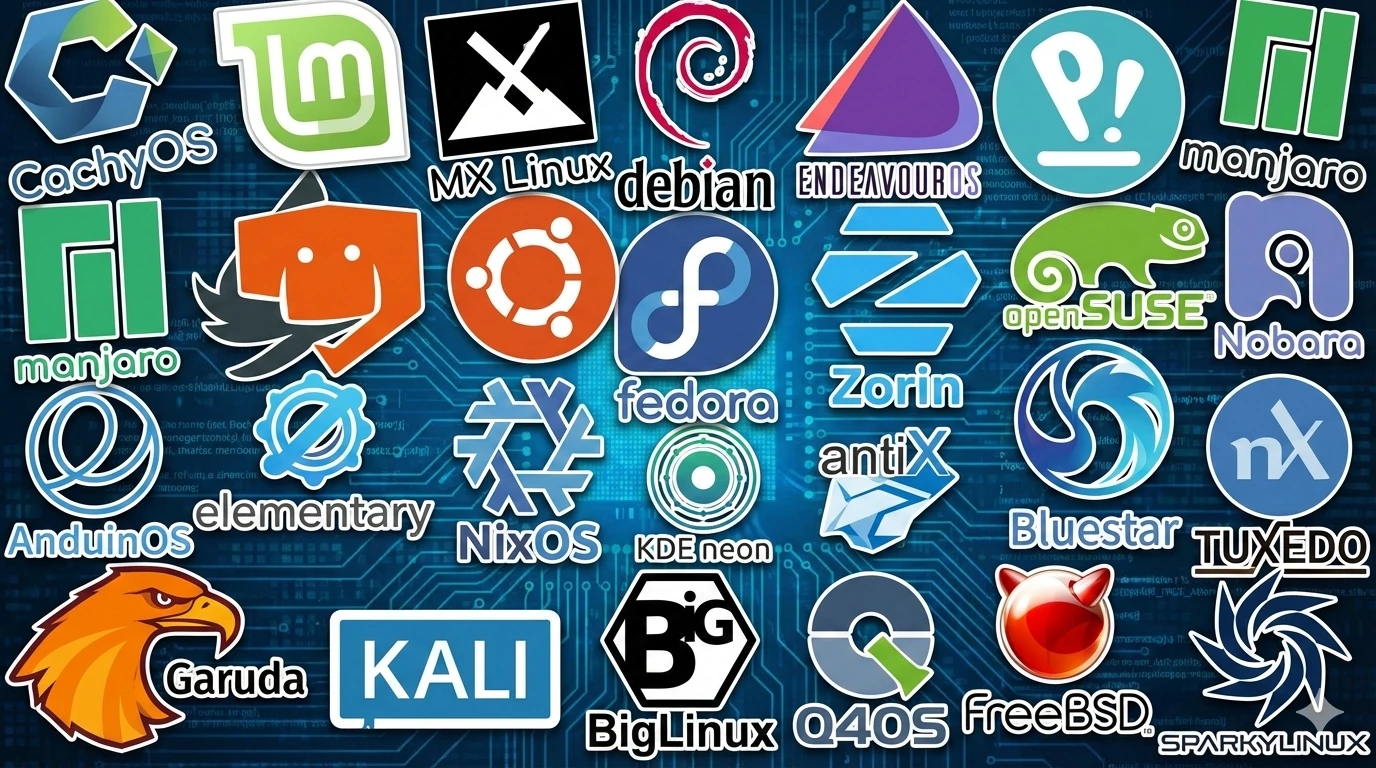As the landscape of Linux distributions (distros) continues to evolve, 2024 brings a vibrant selection of operating systems catering to a wide range of users. Whether you’re a newcomer seeking a user-friendly introduction to Linux or a seasoned professional looking for powerful customization options, there’s a distro for you. Here’s a look at some of the most popular Linux distros this year.
MX Linux
MX Linux has consistently ranked high in popularity due to its balance of simplicity and performance. Based on Debian, MX Linux provides a stable and reliable environment with a focus on efficiency and a user-friendly interface. The Xfce desktop environment is the default, offering a lightweight yet fully functional desktop experience. The community-driven development ensures regular updates and a responsive support network, making it a favorite for both beginners and experienced users.
Linux Mint
Linux Mint remains a top choice for those transitioning from Windows. Known for its ease of use, Mint offers a polished and familiar desktop experience with its Cinnamon, MATE, and Xfce editions. The Ubuntu-based system benefits from a robust repository and strong community support. Mint’s commitment to user experience is evident in features like its custom software manager and numerous pre-installed multimedia codecs, ensuring a hassle-free setup.
EndeavourOS
For users who want the power of Arch Linux without the complicated installation process, EndeavourOS is an excellent choice. EndeavourOS provides a minimal base system with the option to install various desktop environments and window managers during setup. This flexibility allows users to create a highly customized system tailored to their needs. The community is known for its friendliness and support, making it easier for new users to navigate the intricacies of an Arch-based system.
Manjaro
Manjaro takes the complexity out of Arch Linux by offering a user-friendly, pre-configured system. Available in multiple desktop environments including Xfce, GNOME, and KDE Plasma, Manjaro caters to different preferences while maintaining the rolling release model of Arch. This ensures users have access to the latest software and features. Manjaro’s robust package management and hardware detection make it a go-to choice for those seeking a balance between cutting-edge technology and stability.
Ubuntu
Ubuntu continues to be a leading distro in the Linux world, renowned for its ease of use and widespread support. The latest Long-Term Support (LTS) release provides a stable and secure environment for both desktops and servers. Ubuntu’s GNOME desktop offers a modern, polished interface, while the extensive software repository and strong community support make it suitable for users of all levels. Canonical’s focus on professional and enterprise environments also ensures that Ubuntu remains a versatile choice for various applications.
Zorin OS
Zorin OS is designed to make the transition from other operating systems as smooth as possible. With its Windows-like interface, Zorin OS is particularly appealing to newcomers. The distro comes in several editions, including a free Core edition and a paid Ultimate edition, which offers additional software and features. Based on Ubuntu, Zorin OS benefits from a solid foundation while focusing on an intuitive user experience and beautiful design.
Pop!_OS
Developed by System76, Pop!_OS is tailored for developers, engineers, and computer scientists. Based on Ubuntu, it offers a clean and focused desktop experience with the GNOME environment. Pop!_OS includes unique features like automatic window tiling and advanced power management, making it ideal for productivity and multitasking. The dedicated support from System76 ensures a professional polish and ongoing enhancements, making it a favorite among power users and professionals.
openSUSE
openSUSE offers two main editions: Leap and Tumbleweed. Leap provides a stable, enterprise-grade environment with regular updates, while Tumbleweed offers a rolling release model for access to the latest software. Both versions feature the powerful YaST configuration tool, which simplifies system management. openSUSE’s commitment to security and stability makes it a reliable choice for both desktop and server use.
Nobara
Nobara is an emerging distro that aims to provide a superior gaming experience on Linux. Built on Fedora, Nobara includes pre-configured gaming tools and drivers, making it easier for gamers to get started. The distro focuses on out-of-the-box support for a wide range of games and hardware, ensuring a smooth and enjoyable gaming experience.
Garuda Linux
Garuda Linux stands out with its striking visual aesthetics and performance-oriented tweaks. Based on Arch Linux, Garuda offers various desktop environments, all optimized for speed and efficiency. The Btrfs file system with zstd compression, along with the Garuda Assistant for easy system management, provides a robust and responsive system. Garuda’s focus on gaming and multimedia makes it a compelling choice for users looking for a visually appealing and high-performance Linux experience.
Summary
The diversity of Linux distributions in 2024 ensures that there’s something for everyone, from casual users to professionals. Whether you prioritize stability, customization, ease of use, or specific applications like gaming, these distros provide a wealth of options to meet your needs. The active communities and ongoing development behind each of these distributions guarantee that Linux will continue to thrive and innovate in the years to come.
The 25 Most Popular Linux Distributions of 2025: A Complete Guide
*An expert overview of the top-ranked Linux distros based on DistroWatch’s latest 12-month ran…
Is Gentoo Linux user friendly enough once it’s fully set?
Short answer: once Gentoo Linux is installed and configured, it can be perfectly “user-friendly” to …
10 Emerging Linux Distros to Watch in 2026
In the Linux ecosystem, gravity tends to pull us toward the giants—Ubuntu, Fedora, or Mint. But if 2…


